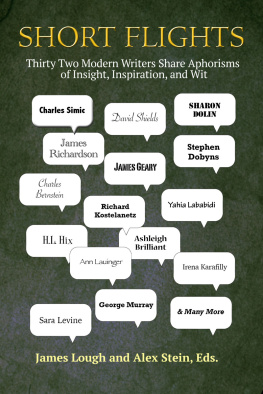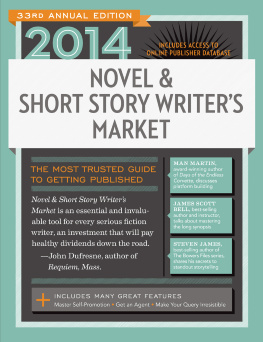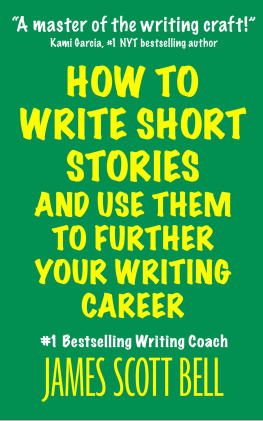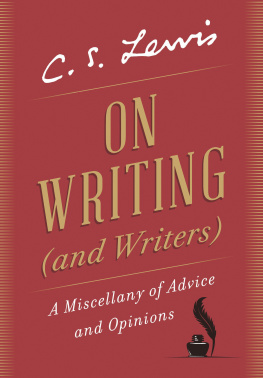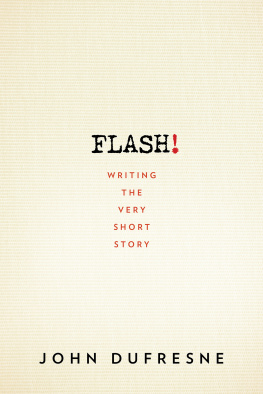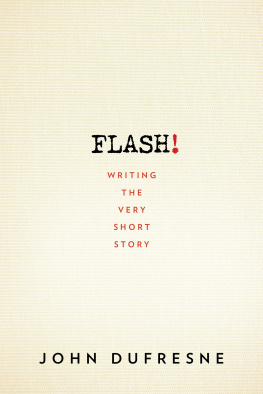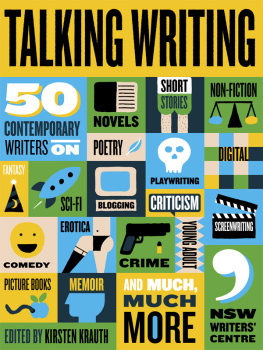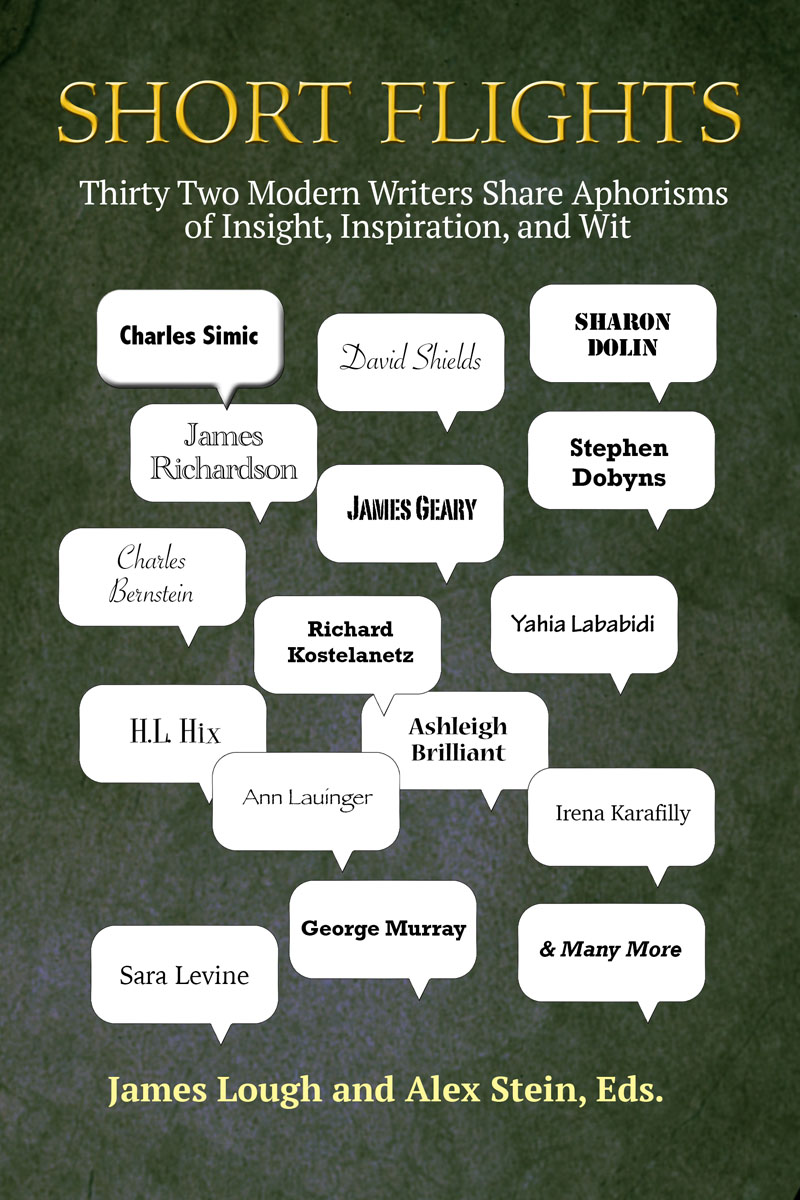
Copyright page
Dedication or ???
Aphorisms or essays by the following authors first appeared in these venues:
John Bradley: Hotel Amerika; Trancelumination (Lowbrow Press).
Alfred Corn: The Pith Helmet (Cummington Press); and Salamagundi.
Sharon Dolin: Denver Quarterly, and the Kenyon Review Online; essay first appeared in The American Poet.
Thomas Farber: The End of My Wits (El Leon Literary Arts).
Kevin Griffith: Hotel America.
H. L. Hix: Spirits Hovering Over the Ashes: Legacies of Postmodern Theory (SUNY Press).
Ann Lauinger: Hotel Amerika; Against Butterlies (Little Red Tree).
Dan Liebert: The Yale Review; Barrow Street; The London Magazine; Exquisite Corpse; New Orleans Review; Michigan Quarterly Review; Hotel Amerika; Mayday; Cold Mountain Review; FragLit; All Aphorisms All the Time.
James Lough: Hotel Amerika.
James Richardson: Vectors (Copper Canyon Press, previously Ausable Press).
Charles Simic: The Monster Loves his Labyrinth (Copper Canyon Press, previously Ausable Press).
David Shields: Reality Hunger (Knopf)
Michael Theune: The Iowa Review, Seven Corners blog.
Contents
Preface
by
Alex Stein
J ames Lough and I conceived this project several years ago after attending a panel discussion at a convention in Chicago. Sara Levine was a panel member. She spoke about teaching the aphorism and was flawlessly entertaining. James Richardson was a panel member. His little aphorisms were getting big laughs from the audience.
During the question and answer portion I asked the panel why there were no anthologies of contemporary aphorists. There was a general, abashed consensus among the panelists that the audience did not exist for such an undertaking. But surely, I called out, the same can be said for anthologies of contemporary poets, and those are getting published by the boatload.
The remaining audience seemed to get a kick out of the phrase, by the boatload, in this context, but talk shifted elsewhere.
When the panel concluded I gathered contact information from Richardson and Levine. Richardson could get me in touch with James Geary, whose best-selling book, The World in a Phrase, was being called the definitive work on the subject of aphorism and whose literary blog All Aphorism, All the Time, convened many of the best contemporary aphorists into one convenient forum.
I think we should do this, I said to Lough, who was waiting by the exit, talking to his wife on the phone.
What? he asked, covering the mouthpiece.
I think we should put together an anthology of contemporary aphorists. It would be the first. I think we should do it.
Oh, we are doing it, all right, James replied. A gift like this doesnt get dropped in your lap every day.
Thanks for seeing it, James Lough. And for seeing it through. And many thanks to the writers whose aphorisms appear in these pages.
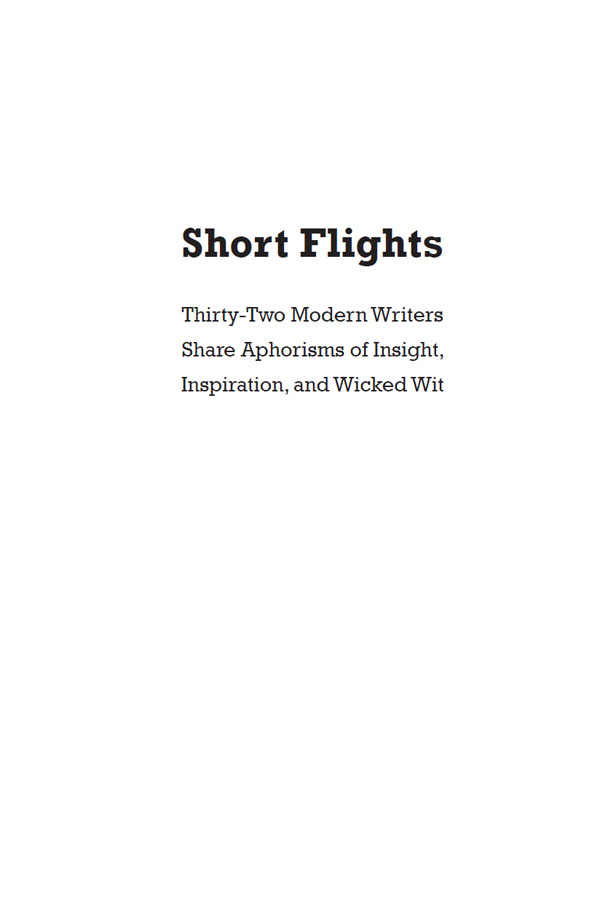
Varieties of Aphoristic Experience: A Breviary of the Briefest Genre
by
James Lough
Time Stays, We Go
T he aphorism is a very old kind of writing. It goes back at least as far as the Proverbs in the Hebrew bible and the Hindu sutras, which were spiritual instruction manuals from many centuries B.C.E. Ancients had lots of spare time. Hunter-gatherers worked roughly twenty-hour weeks and early farmers had whole seasons off to contemplate the big questions: What is the good life? Why are we here? How should I store my millet? Hence, the aphorism was born.
But with all this time on their hands, why did they focus on cranking out mostly graffiti-length tidbits?
Because the ancients understood that much of their audience, rich in time, was poor in education. Most were barely literate, so the writers pronouncements had better be brief and pack some punch. Life was short, the ancients understood, so grind wisdom down to its sharpest point.
The same policy works well for us today but for different reasons. Moderns are much more educated, with a world literacy rate of 84%. Our media of communication have mushroomed almost infinitely. But our need for bedrock insights is as urgent as ever. While most of us are no longer preoccupied by tigers in the trees and enemies over the hill, there is a shortage of what the ancients had in spades: time. Our time is imperiled by tidal waves of trivia, hectored by a hundred emails a day, collared by this ad slogan or that list of things to do, each one sidetracking our steady, focused awareness. As T.S. Eliot prophesied a hundred years ago, we are distracted from distraction by distraction.
This unsteady stream of information can be overwhelming. It can also have the effect of flattening wisdom, knowledge and reflection into mere information. As presented by our media, Aesop gets the same 15-second spot as Aflac and Dantes no richer than Dairy Queen. Our Internet experts even have collapsed our cultural achievements as deep thought, original insight and facility with language into one distressingly broad generic term: content. Stuff we pour between the pictures. The result? We skim rather than absorb. Strapped for time, we spread ourselves thin and grow shallow. We read Sappho or Shakespeare the same way we glance over a tweet or a text message, scanning for the gist, impatient to move on. But you cant skim Shakespeare.
As a compromise with our busy era, we come back to the aphorism, a quickly-digested little word morsel, delightful and instructive, that condenses thought, insight, and wordplay. But dont let its convenience deceive you some aphorisms hit the tongue less like candy and more like bitter pills. As James Geary puts it, It must have a twist, or an element of surprise. A good aphorism will deceive us, drawing us north and instantly swerving south, beckoning us like a pretty little rug that yanks itself out from under our feet so we can examine it up close. A strong aphorism seduces, surprises, and sinks in.
Instruction and Insight
An aphorism can lead us in one of two basic philosophical directions. The first is the aphorism of instruction: the maxim or proverb. It tells you what to do and how to live.
Work as if you were to live 100 years, pray as if you were to die tomorrow.
--Benjamin Franklin
The aphorism of instruction generally comes from a person who has ventured far in the world of affairs and wants to help us along a similar path. This kind of aphorism is homely and avuncular, practical like a stout walking stick. It upholds the status quo, preserves traditional values and worldviews. Its impulse is essentially conservative, to preserve and pass on what has worked in the past.
A bird in the hand is worth two in the bush.
The second philosophical approach is the aphorism of insight. The aphorism of insight is not a champion of tradition its an outlaw. It doesnt pretend to tell us what to do, though its goal is at least as presumptuous. It tells us how things are, tells us whats what, at a deeper level than common sense. Insight aphorisms penetrate. They see more deeply than most of us usually dare, or they come from startling vantage points:
Next page
